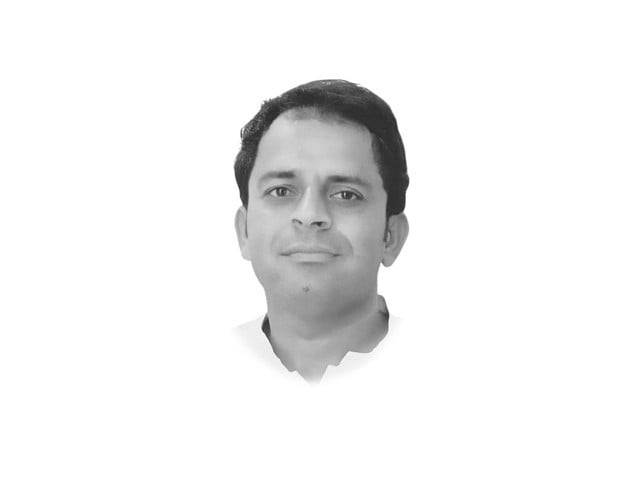A tale of two sources
The practices of suppressing truth and manipulating laws are as old as the conceptualisation of truth itself.

Notwithstanding its evolving and inherently subjective nature in a cultural context, truth operates in all societies through inclusive institutions, just practices, and fair values. The inclusiveness, embedded in laws, determines and enforces truth, helping to maintain social order in the societal framework. Meanwhile, courting, manipulating or subverting statutes and the Constitution in any form is akin to suppressing the truth to which most of the population in a society gives assent - whether implicitly, explicitly, or through a combination of the two.
The practices of suppressing truth and manipulating laws are as old as the conceptualisation of truth itself. The abrogation of rules, their misrepresentation, or their substitution with exclusive ones has persisted throughout human history, with Pakistan being no exception. Pakistan's rank - 129th out of 142 countries on the WJP's Rule of Law Index (2024) - highlights the law's subservient and subjugated role in the country, raising a critical question: what dictates national affairs, overriding laws and established principles of justice?
Though the answer can be interpreted in various ways, two often-overlooked agents - represented by the homograph "source" in layman's terms - significantly influence the workings of the state's machinery. The way the term "source" is used carries substantial implications for undermining the law and eroding the truth. The first "source" often refers to an implied "system of influence, power, brute force, connections and wealth", encompassing widespread interpersonal and institutional activities, as well as national affairs. This system dictates national affairs through recommendations, coercion, force, money, influence and affiliations. The second "source", a buzzword in mainstream media and among spin doctors - and, to some extent, prominent in digital media - primarily peddles opinions, informs the public, and helps build state narratives.
The first source substitutes law and underlies most of the state's activities, including socio-economic, legislative, judicial and bureaucratic functions, as well as recruitment, promotions, and postings. This also suggests a clear fact: most of the human capital managing national affairs, provincial services, and local administration is either a product of one or both sources or, more importantly, a beneficiary of the same. This is one of the reasons why they have steered the country onto an uncharted path of exclusion, exploitation, and regression. Had they achieved their respective national stakes through ability or the law, they would not have facilitated - if not actively resisted - the country's descent into chaos.
Today, the economy is in tatters, and the polity is more divided than ever. Foreign policy is in limbo. Societal alienation is unprecedented. Poverty, lawlessness, and injustice have turned people's lives into a hopeless living hell. In the midst of all this, the greatest irony is that the architects and beneficiaries of the national tumult are expected to steer the country out of the quagmire of crisis.
The second source - cited by most mainstream media outlets - complements or abets the first by trading media freedom, public rights, and truth for financial and personal gains, whether cash or kind. Mainstream media today operates more on these sources than on truth. Most media houses, analysts, and opinion-makers, adhere to pseudo-intellectualism and fallacies in their pursuit of newsworthiness and narrative-building. This is achieved through selective reporting, misquoting events, and relying on phantom sources.
Those who anonymously share news or opinions are either unauthorised, seek to evade scrutiny, or both. Similarly, most of those citing anonymous sources to peddle ideas are nothing but purveyors of fallacies that serve the speakers and their patrons more than the truth, people, or the country. It is this anonymity of the source that, apart from serving the real sources or the speakers, blatantly defies the veracity of their narratives, laws, and truth.
And the infamous 26th Amendment and the amended PECA Act have codified and entrenched these two sources as the new legal and factual authority in the country.















COMMENTS
Comments are moderated and generally will be posted if they are on-topic and not abusive.
For more information, please see our Comments FAQ